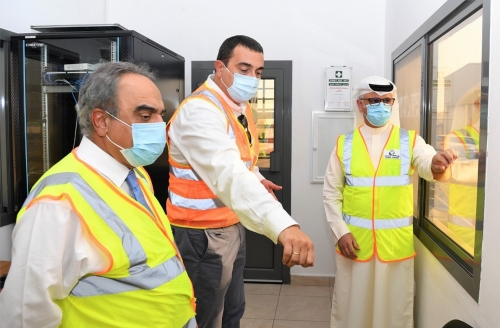52pc construction waste recycled in 2019: Minister
TDT | Manama
Bahrain recycled nearly 355,000 tons of construction waste in 2019, more than half of such waste produced last year, said Works Minister. Nearly 52 per cent of the construction and demolition waste produced last year were recycled and reused for road works, said Essam Khalaf, the minster of Works, Municipal Affairs and Urban Planning.
Playing a substantial role in this effort was the recycling plant commissioned in January last year, the minister said during a field visit. Nass Asphalt bagged the 10-year deal to separate construction and demolition waste and convert it into materials that can be used in infrastructure projects, an earlier report has said.
On Bahrain’s waste management strategy, the minister said the Kingdom attaches great importance to it, especially with the landfill in Askar managing 1.8 million tonnes of waste last year. Of this, the majority, 677 thousand tons, or 38 pc, was demolition and construction waste. Household waste forms 32pc or 566 thousand tons, while commercial and industrial waste accounts for 24pc or 424 thousand tons.
Agriculture waste accounts 7 pc or 126 thousand tons of the total waste created. Explaining, Minister Khalaf said, “Approximately 100 thousand tons of construction and demolition wastes were used for making internal paths of the landfill, as well as for pillars of the landfill boundaries.”
The minister also pointed out that by employing modern technologies, the authority has also extended the life of the landfill by an additional six years, from two years. The whole operation is now better organised, which also enhanced the analysis of the data collected, the minister said, thanks to the new weighting scales linked to accurate electronic systems.
“Modern tech has also contributed to streamlining the process of depositing and compressing the waste and covering it under layers of sand to avoid leakage of water and biogas.” Safety, the minister said, is being ensured by constant monitoring of meteorological data, air quality, emission of harmful gases and by assessing the movement and stability of the landfill topography.
Related Posts

